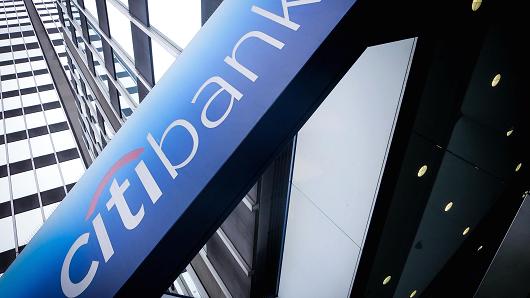-
Tips for becoming a good boxer - November 6, 2020
-
7 expert tips for making your hens night a memorable one - November 6, 2020
-
5 reasons to host your Christmas party on a cruise boat - November 6, 2020
-
What to do when you’re charged with a crime - November 6, 2020
-
Should you get one or multiple dogs? Here’s all you need to know - November 3, 2020
-
A Guide: How to Build Your Very Own Magic Mirror - February 14, 2019
-
Our Top Inspirational Baseball Stars - November 24, 2018
-
Five Tech Tools That Will Help You Turn Your Blog into a Business - November 24, 2018
-
How to Indulge on Vacation without Expanding Your Waist - November 9, 2018
-
5 Strategies for Businesses to Appeal to Today’s Increasingly Mobile-Crazed Customers - November 9, 2018
Citigroup pays $US180m to settle case
Two Citigroup Inc. affiliates have agreed to pay $179.5 million to resolve federal regulators’ charges of misleading investors in hedge funds that later collapsed.
Advertisement
“Advisers at these Citigroup affiliates were supposed to be looking out for investors’ best interests, but falsely assured them they were making safe investments even when the funds were on the brink of disaster”, said Andrew Ceresney, director of the SEC’s enforcement division, in a statement.
The SEC alleged that both Citigroup units claimed the hedge funds were safe, low-risk and suitable for “traditional bond investors”, but failed to disclose the “very real risks” in the funds, which eventually crumbled and then collapsed during the financial crisis.
The SEC criticised Citigroup for poorly overseeing fund management staff to ensure communications were ‘accurate and not misleading’. In a statement, Citigroup said the company was pleased to have resolved the matter. Islam, who left Citigroup in 2008, had said that he never marketed the funds to investors.
Some of these representations were even at odds with the disclosures contained in marketing material related to the funds, according to the SEC, and neither were the low-risk bond alternatives investors were sold.
The Falcon fund was a multi-strategy fund that invested in ASTA/MAT and other fixed income strategies, such as CDOs, CLOs, and asset-backed securities.
Investors in these funds effectively paid advisory fees for two tiers of investment advice: first from the financial advisers of CGMI and secondly from the fund manager, CAI. They failed to disclose the fund’s requests for liquidity support, which were denied by CAI and Citigroup, or the sale of over $8.4 billion in fund assets to meet growing margin calls, the SEC said.
However, the reality was that the funds were much riskier, and ultimately collapsed during the financial crisis.
Advertisement
In one case, Citigroup Private Bank had an internal risk rating that noted the funds had “significant risk to principal”, but that rating was never shared with the majority of investors and financial advisers, according to the SEC.





























